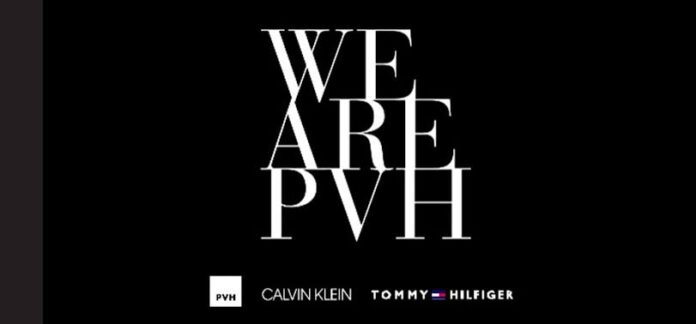China has initiated an investigation into PVH Group, the parent company of fashion brands Calvin Klein and Tommy Hilfiger, over allegations of “discriminatory measures” concerning cotton sourced from Xinjiang, a region in China that has been the subject of global controversy. This move comes in the wake of Western nations imposing trade restrictions on Xinjiang cotton due to concerns about forced labor and human rights violations in the region. The investigation, launched under China’s Unreliable Entity List framework, could further strain trade relations between China and the United States, highlighting the growing intersection of geopolitics, trade, and corporate responsibility.
Xinjiang Cotton: A Global Controversy
Xinjiang, located in China’s far west, is known for being a major cotton-producing region. It is also the center of allegations concerning human rights abuses against Uyghur Muslims. Numerous reports and investigations have accused the Chinese government of forcing Uyghurs into labor camps, where they are compelled to work under inhumane conditions. In response to these allegations, several Western countries, including the United States, have imposed trade restrictions on products made with Xinjiang cotton.
In 2021, the United States introduced the Uyghur Forced Labor Prevention Act (UFLPA), which bans the import of goods produced in Xinjiang unless companies can prove that they were not made using forced labor. This move put significant pressure on global companies that source cotton from China, leading many to distance themselves from Xinjiang products. Brands like Nike, H&M, and PVH Group—owner of Calvin Klein and Tommy Hilfiger—faced public scrutiny and were forced to reevaluate their supply chains.
China’s Response: The Unreliable Entity List
China has long denied allegations of forced labor in Xinjiang, maintaining that its policies in the region are focused on counter-terrorism and poverty alleviation. In response to international sanctions and trade restrictions, China has implemented its own measures to protect its businesses and interests. One such measure is the Unreliable Entity List, a framework that allows China to penalize foreign firms it deems to be acting against its sovereignty or economic interests.
China Sanctions on U.S. Defense Firms: A Response to Arms Sales to Taiwan
PVH Group is now facing investigation under this framework. China’s Ministry of Commerce announced the investigation on Tuesday, stating that it is probing the company for “discriminatory measures” regarding products sourced from Xinjiang. While the specifics of the alleged discriminatory actions have not been disclosed, the investigation could result in severe consequences for PVH Group if it is found guilty. The company could be banned from trading with China, and its ability to invest in the country or send personnel could be severely restricted.
Implications for PVH Group and Global Trade
The investigation into PVH Group is significant for several reasons. First, it highlights the growing tension between global companies and geopolitical issues. Many multinational corporations, especially in the fashion industry, have come under fire for failing to address forced labor concerns in their supply chains. As more governments and organizations take a stand against forced labor, companies are increasingly being forced to choose between complying with international human rights standards and maintaining their access to lucrative markets like China.
China’s TP-Link Routers Under Fire: U.S. Lawmakers Demand Investigation into Espionage Threat
For PVH Group, which relies heavily on China for both manufacturing and sales, the investigation could have far-reaching consequences. A ban on trading with China would not only disrupt its supply chains but also cut off a significant portion of its revenue. China is a major consumer market for fashion brands, and losing access to it could severely impact the company’s profitability. Additionally, the investigation could further damage the company’s reputation, which has already taken a hit due to its alleged links to Xinjiang cotton.
Escalating Tensions between China and the United States
The investigation also has broader implications for the already strained trade relationship between China and the United States. The two countries have been engaged in a trade war since 2018, with both sides imposing tariffs and sanctions on each other’s goods. The issue of Xinjiang cotton has become a flashpoint in this trade conflict, with the U.S. accusing China of human rights abuses and China accusing the U.S. of interfering in its domestic affairs.
Quad Issues Strong Message to China Over UNCLOS Violations
China’s decision to investigate PVH Group is likely to exacerbate these tensions. The United States has been one of the most vocal critics of China’s policies in Xinjiang, and the investigation could be seen as a retaliatory move. By targeting a major U.S.-based company like PVH Group, China is sending a clear message that it will not back down from its position on Xinjiang. This could lead to further sanctions and restrictions from both sides, deepening the trade conflict and creating more uncertainty for global businesses.
The Broader Impact on the Fashion Industry
The investigation into PVH Group is part of a larger trend in the fashion industry, where companies are being held accountable for their supply chain practices. In recent years, consumers and advocacy groups have become increasingly aware of the ethical issues surrounding fashion production, from forced labor to environmental sustainability. As a result, brands are being pressured to ensure that their products are made in a socially responsible manner.
The controversy over Xinjiang cotton is just one example of how these issues are playing out on the global stage. Many fashion brands, including PVH Group, have pledged to improve transparency in their supply chains and ensure that they are not using forced labor. However, these efforts are often complicated by the complexities of global trade and the conflicting interests of different governments.
For the fashion industry as a whole, the investigation into PVH Group serves as a reminder that companies can no longer afford to ignore the ethical implications of their sourcing decisions. As governments and consumers continue to demand greater accountability, brands will need to adapt to the changing landscape or risk losing their reputations and market share.


